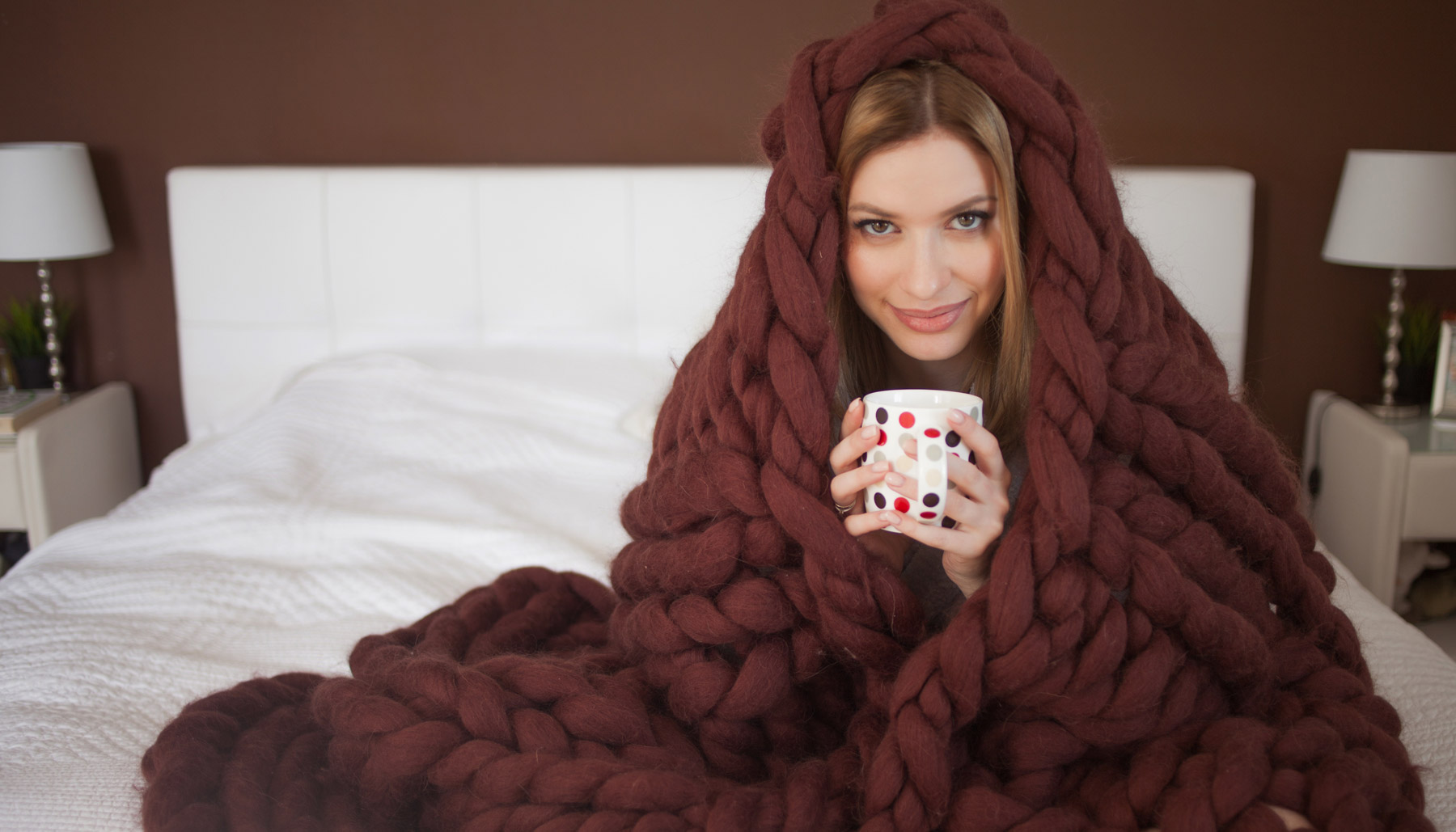If you’ve been to any home retailer in the past year you’ve undoubtedly seen displays for weighted blankets. And unless you’ve been living under a rock (which hey, no judgment here, we are in the middle of a pandemic) you’ve also heard people talk about them as if they’re the answer to all of your problems.
But are weighted blankets really worth the hype? Let’s take a look at what some experts have to say.
What They Claim to Do
There isn’t actually a ton of research out there about how weighted blankets do what they claim to do, which is help with insomnia, depression, anxiety, and PTSD among other things. But experts have weighed in (see what I did there?) on the matter.
Psychotherapist Haley Neidich, for example, believes they’re effective because they help us to connect to our own bodies and to the present moment.
“Individuals suffering from these conditions often feel disconnected from their body and emotionally unsafe,” she says. “Weighted blankets help to ground their bodies [by] creating a sense of safety and stability.”
How They Work
Some experts – and manufacturers – explain that weighted blankets work so well for people with these mental health conditions because of their use of deep touch pressure, or DTP.
“DTP mimics the sensation of being hugged, and this stimulates the release of serotonin and melatonin—two neurotransmitters that help regulate sleep and mood,” says Kathrin Hamm, founder and CEO of Bearaby, one of the most popular – and pricey — brands.
Since they help to regulate serotonin and melatonin, they also help to decrease the stress hormone cortisol, which is known to aggravate pre-existing depression, anxiety, and PTSD.
DTP is also thought to decrease the overall activity of your nervous system, which helps to slow down a racing mind and lower your anxiety levels.
And since weighted blankets even distribute this deep pressure over your entire body, they also gently inhibit your movement throughout the night. This means you’re less likely to toss and turn, so you to get a more restful night’s sleep.
Things to Keep in Mind
Not all weighted blankets are created equally. One of the keys to their effectiveness is the even distribution of weight across the body. Most brands I’ve seen – including my own – achieve this by filling the blankets with small beads or pellets that are suspended throughout the blanket by stitched paneling.
If that paneling is too wide, or as with some cheaper blankets, completely non-existent, those little beads will pool in the corners of your blanket. That might make you feel like you’re being strapped into a straight jacket-type scenario, which hardly sounds relaxing.
There are some that achieve their weight through layering of weighted fabrics, which means that distribution won’t shift (or sound like a rain stick) when you move. Though these seem to be among the pricier options. Some versions are also an open-weave, which is a serious plus because if your blanket isn’t breathable, you might need to keep your bedroom quite cool so you don’t overheat in the middle of the night.
Lastly, if you’re torn on what size of weighted blanket to choose, a good rule of thumb is 10% of your total body weight. So if you weigh 150 lbs., opt for a 15 lb. blanket.
The Verdict
I can say from experience that these things are definitely worth a try. I’d been eyeing them for quite a while, so when my husband told me to close my eyes on Christmas morning and then wrapped me up in one, I was on cloud nine. (He questioned his decision ever-so-slightly the next day when I slept in past noon and he had to come wake me up.)
Like we said, not all blankets are created equal, so definitely do your research. A quick poll of some of our writers reinforced the opinion that they’re amazing but can also get super toasty overnight, so it’s a good idea to look for breathable options.
There’s also a very big range of prices out there. Some highly rated blankets can be found on Amazon in the $30 range, and then there’s Bearaby’s super popular Velvet Napper coming in at $269.
Then again, we’re talking about our sleep and mental health here. Maybe some things are just worth splurging on.













